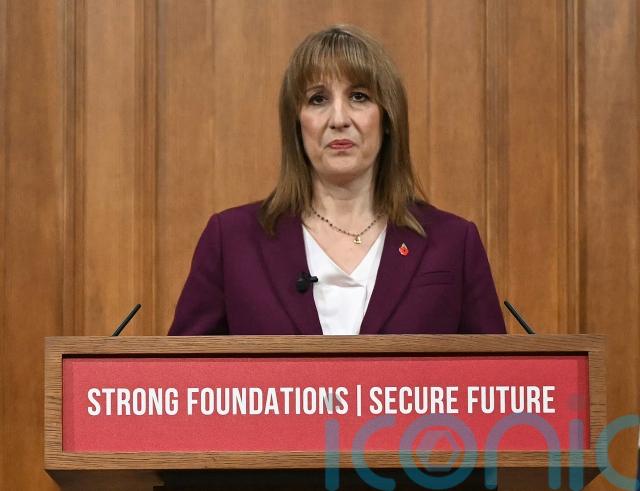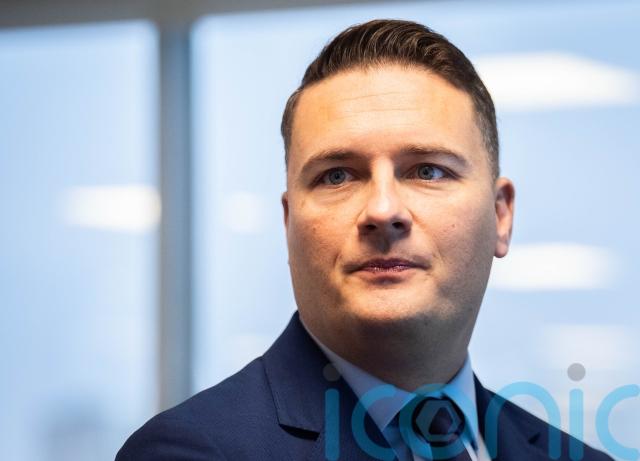
The Chancellor has abandoned plans to hike income tax at the Budget because of improved economic forecasting.
Rachel Reeves had been expected to hike income tax in the face of a yawning gap in her spending plans, hinting as recently as Monday that the alternative would be “deep cuts” to public investment.
But reporting overnight claimed she has abandoned introducing an income tax rise at the November 26 Budget over fears it could anger both voters and backbench Labour MPs.

The PA news agency understands the strength of tax receipts has improved forecasting from the Office for Budget Responsibility, allowing for the U-turn.
This is particularly the case on stronger wage performance: the higher wages are, the more tax is paid on them.
A downgrade in productivity has also not been as bad as was first feared.
While Ms Reeves is no longer understood to be pursuing an income tax hike, tough choices are still said to lie ahead for the Government and other tax rises have not been ruled out.
Income tax thresholds could still be reduced while tax rates are kept the same, a move which could raise billions of pounds for the Treasury.
Limits to salary sacrifice schemes, as well as new measures to tax electric vehicles, are still in the mix as the Treasury pursues a “smorgasbord” approach of raising a range of smaller taxes.
The Chancellor has not changed her approach, it is understood, and still intends to give herself larger fiscal headroom – the buffer against economic headwinds which could impact Government spending plans.
The latest Budget measures were submitted last week, rather than being a knee-jerk response to the turmoil in No 10 this week sparked by a briefing war.
Ms Reeves has been laying the ground for tax rises over recent weeks, including during an early-morning speech on November 4 aimed at preparing the public for the Budget.
Downing Street insisted that the thrust of the speech “stands”.
The Prime Minister’s official spokesman said: “She was very clear about the challenges the country faces and her priorities in addressing those challenges.
“All of that still stands.”
The spokesman refused to comment on Budget speculation, but said the Chancellor will aim to “build more resilient public finances with the headroom to withstand global turbulence”.
This would “give businesses the confidence to invest and leaving the Government freer to act when the situation calls for it”, he added.
Government borrowing costs rose in the wake of the apparent U-turn on income tax on Friday morning.
Speculation about the change in direction sparked a sell-off in UK Government bonds, also known as gilts: the means by which the Government borrows money from private investors.
The gilt market later stabilised somewhat as the reasoning behind the Treasury’s decision-making became apparent.
Among those who welcomed suggestions the tax rise had been abandoned was Health Secretary Wes Streeting.

He told PA: “What I would say about this morning is, it is really important that we keep the promises that we made to the public at the last general election.
“Our economy was broken by the Conservatives, so were our public services, but so was trust in politics itself.
“Our job is to rebuild the economy, rebuild our public services, and rebuild trust in politics.”
Helen Miller, director of the Institute for Fiscal Studies (IFS) think tank, said it was “not unusual” for chancellors to make last-minute changes to their Budget plans.
She added: “But the news that Rachel Reeves has backed away from a plan to increase the rates of income tax will lead investors to worry that the Chancellor will instead increase a range of smaller taxes that can be more damaging to economic growth.
“They may also worry that the change of plans signals that this Government are reluctant to do politically difficult things.
“These are the kinds of concerns that can lead investors to demand higher returns when lending to the Government.”
If the Government does choose to raise a set of smaller taxes, they should also be reformed “so that they do less damage to growth”, the IFS chief said.
Subscribe or register today to discover more from DonegalLive.ie
Buy the e-paper of the Donegal Democrat, Donegal People's Press, Donegal Post and Inish Times here for instant access to Donegal's premier news titles.
Keep up with the latest news from Donegal with our daily newsletter featuring the most important stories of the day delivered to your inbox every evening at 5pm.